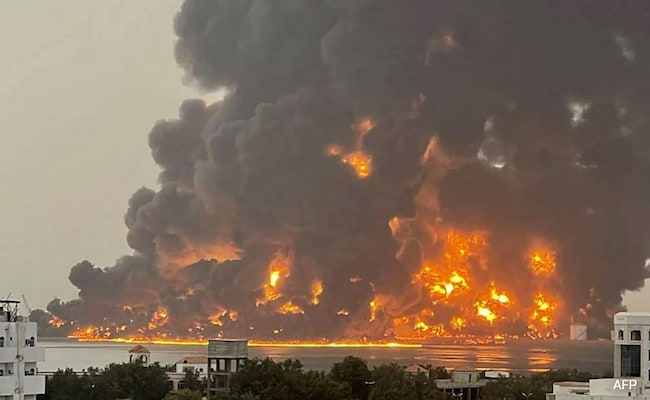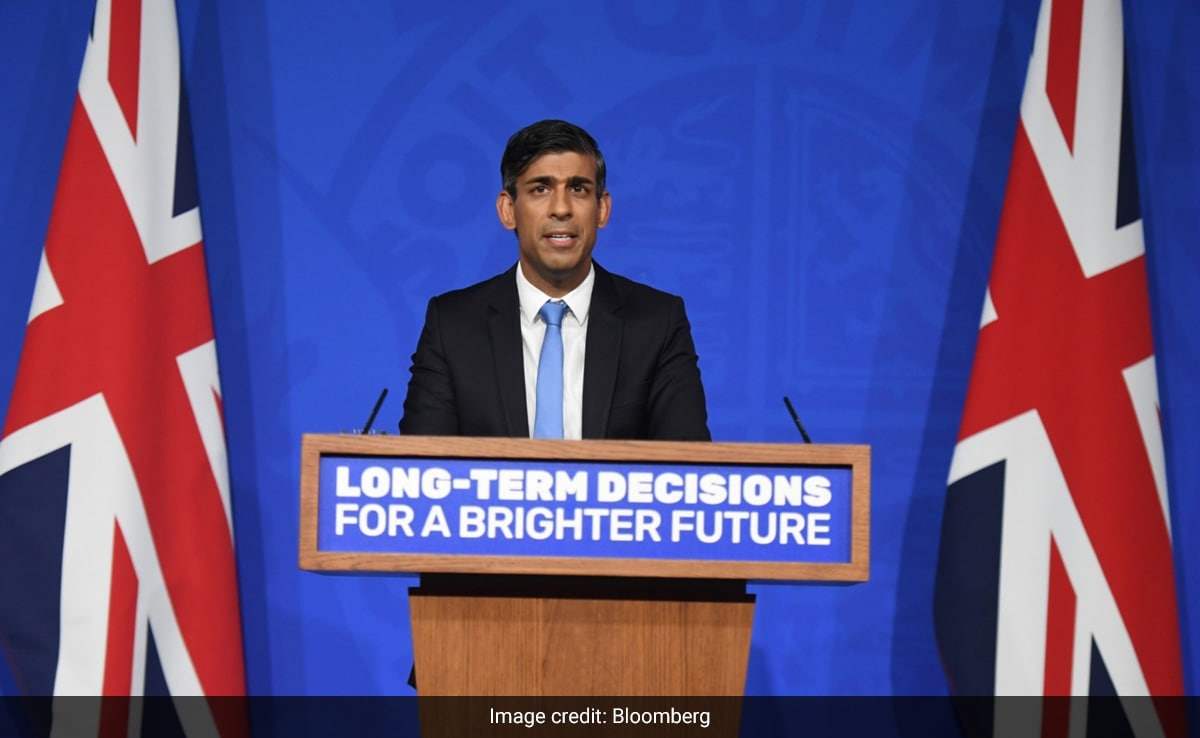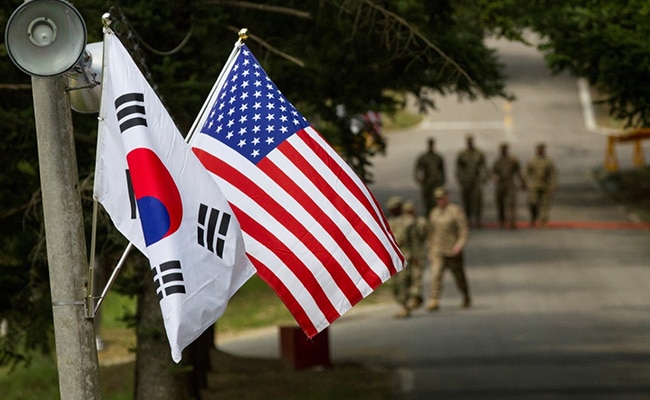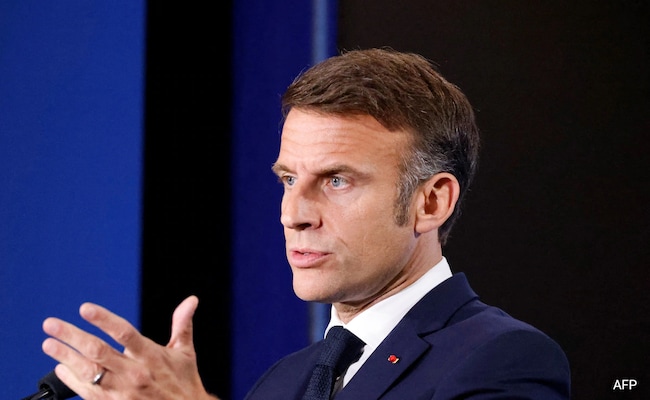The strikes came a day after a Huthi drone attack penetrated Israel’s air defences.
Hodeida, Yemen:
Israeli warplanes struck the Houthi-controlled Yemeni port of Hodeida Saturday, a day after a drone attack by the Houthi rebels killed a civilian in Tel Aviv, both sides said.
The strikes, which triggered a raging fire and plumes of black smoke, are the first claimed by Israel in the Arabian peninsula’s poorest country, some 1,800 kilometres (1,100 miles) away, analysts said.
“The blood of Israeli citizens has a price,” Israeli Defence Minister Yoav Gallant said after the Hodeida strikes, adding more operations against the Iran-backed Houthis would follow “if they dare to attack us”.
“The fire that is currently burning in Hodeida, is seen across the Middle East and the significance is clear.”
Just hours after Friday’s strike in Tel Aviv, Gallant had vowed Israel would retaliate against the Houthis, who control swathes of Yemen, including much of its Red Sea coast.
The Israeli military said its warplanes hit “military targets of the Houthi terrorist regime” Saturday, a day after the drone attack claimed by the Yemeni rebels killed a civilian in Tel Aviv.
Israeli “fighter jets struck military targets of the Houthi terrorist regime in the area of Hodeida port in Yemen in response to the hundreds of attacks carried out against the state of Israel in recent months,” a military statement said.
The Houthis have previously claimed attacks on Israeli cities including Ashdod, Haifa and Eilat, but Friday’s strike on Tel Aviv appears to have been the first to breach Israel’s vaunted air defences.
‘Brutal aggression’
In a statement on social media, top Houthi official Mohammed Abdulsalam reported a “brutal Israel aggression against Yemen.”
The attack targeted “fuel storage facilities and a power plant” in Hodeida “to pressure Yemen to stop supporting” Palestinians in the Gaza war, he said.
The Houthi-run health ministry said there were deaths and injuries in the Hodeida strikes, but it did not give a toll.
In a statement carried by the Houthi-run Al Masirah television, it said several people suffered “serious burns”.
Footage aired by Al Masirah, which AFP could not independently verify, showed a massive blaze on the seafront, with a large plume of black smoke rising into the sky.
An AFP correspondent in Hodeida reported hearing several large explosions and seeing smoke over the port.
Fuel pumps closed across the port city, a key lifeline for imports and international relief for the millions of Yemenis in need after a more than a decade of war.
Hodeida has been hard hit by a series of strikes carried out by Britain and the United States since January in response to attacks by Houthi rebels on commercial shipping in the Red Sea
The Houthis have attacked at least 88 commercial vessels since November in a campaign they say targets Israeli-linked shipping in support of the Palestinians in the Gaza war.
UN chief Antonio Guterres had appealed for “maximum restraint” after the Tel Aviv drone strike to avoid “further escalation in the region”.
But Houthi politburo member Mohammed al-Bukhaiti swiftly threatened revenge for the Hodeida strikes.
“The Zionist entity will pay the price for targeting civilian facilities, and we will meet escalation with escalation,” he said in a post on social media.
Hodeida port, a critical entry point for imports and international aid for Houthi-held parts of Yemen, had remained largely untouched through the decade-long war between the rebels and the internationally recognised government propped up by neighbouring Saudi Arabia.
“Traders now fear that this will exacerbate the already critical food security and humanitarian situation in northern Yemen, as the majority of trade flows through this port,” said Mohammed Albasha, senior Middle East analyst for the US-based Navanti Group.
He said the Israeli strikes “would likely be perceived by many Yemenis as an attack on their homeland, which could bolster Houthi recruitment and funding.”
(Except for the headline, this story has not been edited by NDTV staff and is published from a syndicated feed.)
Waiting for response to load…










